
Through the enactment of the Finance Act 2019 and issuance of the Green Bond Guidelines by the Capital Markets Authority, the government provided the enabling conditions for the successful issuance of the first sustainable infrastructure funding system that is based on an innovative financing instrument - Green Bonds (GB).
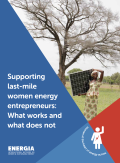
This report presents an overview of a programme that aims to upscale women-centric energy enterprises. Best practices from implementation in seven countries are analysed to support other organizations working on women's enterprise development.
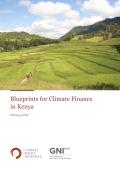
This report highlights innovative financial structures that have the potential to transform livelihoods and sustain projects at the local level.
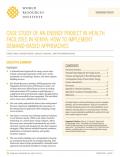
This report analyses the factors that underpinned the loan repayment and highlighted the importance of the demand-based approach when designing energy access projects.
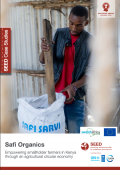
Based in Mwea County, one of the largest producers of rice in Kenya, Safi Organics is an eco-inclusive enterprise that aims to reverse declining agricultural yields, improve the income and food security of local farmers, and provide opportunities for local youth.
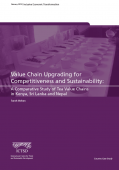
This paper Value Chain Upgrading for Competitiveness and Sustainability: A Comparative Study of Tea Value Chains in Kenya, Sri Lanka and Nepal conducts a comparative analysis of the export tea value chains in Sri Lanka, Kenya, and Nepal with a focus on how policy influences chain upgrading and the implications this has for trade patterns, competitiveness and sustainable development.
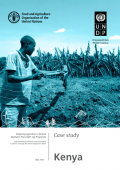
Integrating Agriculture in National Adaptation Plans (NAP–Ag) Programme - Kenya Case Study 2017 is one in a series that describes the steps taken to formulate and implement National Adaptation Plans (NAPs), with a particular emphasis on adaptation in agriculture (incl. forestry, livestock and fisheries).
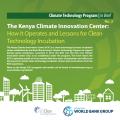
The Climate Technology Program Brief: The Kenya Climate Innovation Center - How it Operates and Lessons for Clean Technology Incubation shares the Kenya Climate Innovation Center’s operating model as it has evolved after four years of operations.

When five per cent of milk fails to meet standards, you have a problem with milk. When 50 percent does not meet standards, you have a problem with standards. In developing countries, perishable food is mostly sold in informal markets and often does not meet national food safety standards. Government...
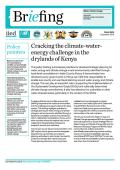
This policy briefing summarises priorities for devolved strategic planning for water, energy and climate change in arid environments, identified through local-level consultations in Isiolo County, Kenya. It demonstrates how devolved county governments in Kenya can fulfil their responsibility to enable sub-county and ward level planning around water, energy and climate...
